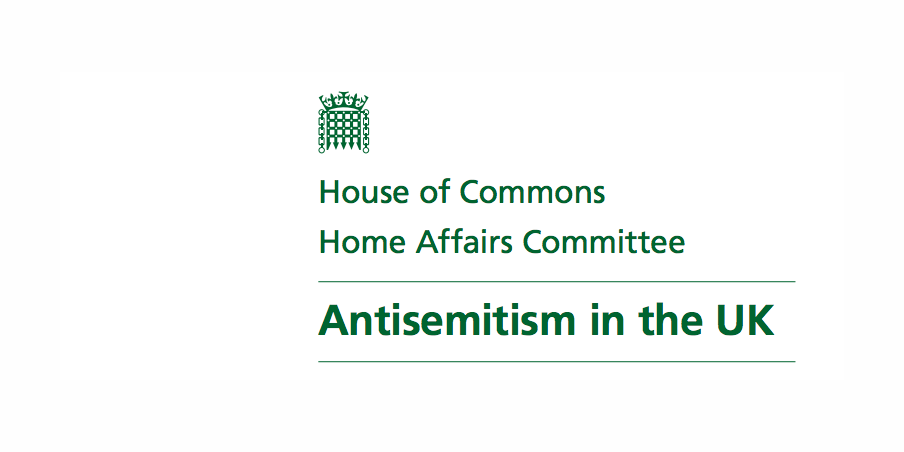CST Blog
The new template for the fight against antisemitism
20 October 2016

This article by CST's Deputy Director of Communications Dave Rich originally appeared in the Jewish News.
The Home Affairs Select Committee report into anti-Semitism, published this week, is a serious body of work that should set the template for action against anti-Semitism in this country for the next few years.
Ten years ago, a previous all-party Parliamentary inquiry into anti-Semitism, set up by John Mann MP and chaired by Denis MacShane, concluded that anti-Semitism was on the rise and had taken on new forms. Islamist extremists and obsessive anti-Zionists had joined the old-style neo-Nazis in posing new threats to Britain’s Jews.
Now a different cross-party group of MPs has once again taken the pulse of our nation and found that, while there has been progress in tackling anti-Semitism since that first report, there is much work still to be done and, in some respects, things are getting worse.
This resonates with our experience at CST. While Jewish life continues to flourish in this country, the terrorist threat we face from jihadists is unlikely to recede, while social media conspiracy theorists and the mainstreaming of some anti-Semitic attitudes continue to grow.
First the good news. The UK, according to the report, “remains one of the least anti-Semitic countries in Europe”. It is hard to disagree with this, particularly when you see our fellow Jews leaving France and other European countries.
The report recognises that there are effective structures in place for communal organisations such as the Community Security Trust (CST), the Board of Deputies and the Jewish Leadership Council to express our concerns directly to government, while the police and Crown Prosecution Service (CPS) have improved their recording of anti-Semitic hate crime and made progress in prosecuting it.
Most gratifyingly for CST, the report relied heavily on our evidence and praised our “impressive and professional work”. Importantly, the report recommended that government funding for security guards at Jewish buildings should be extended on an annual basis.
However, it would be a grave error to be complacent, and the report points out exactly why. Some police forces still do not appear to record anti-Semitic hate crime properly. The amount of hate and abuse on social media is enormous and nobody – not the social media companies themselves, nor the police or CPS – has yet found a solution to it.
The National Union of Students comes in for particular criticism, and rightly so: Jewish students need to be allowed to lead the campaign against anti-Semitism on campus, rather than being preached to about what is, and isn’t, anti-Semitic.
The harshest words in the report, though, are reserved for Jeremy Corbyn’s Labour Party. I’m sure I don’t need to remind readers about their utter failure to deal with the problem of anti-Semitism within their ranks.
According to the report: “The failure of the Labour Party to deal consistently and effectively with anti-Semitic incidents in recent years risks lending force to allegations that elements of the Labour movement are institutionally anti-Semitic.”
The fact that the two Labour MPs on the committee signed off on this verdict speaks volumes.
In total, this report made 30 recommendations covering hate crime, policing, mainstream politics, campus and Jewish security that provide a practical framework for collective efforts to tackle anti-Semitism.
It also recommended a usable definition of anti-Semitism, based on one that the UK government has already signed up to.
The final recommendation made clear why this work is so important: To “oppose racism and religious hate in all its forms, and promote an atmosphere of tolerance, inclusion and understanding, as befits the UK’s status as a multicultural, multi-ethnic and multi-religious society”.
Read More

Love since 7 October
14 February 2025

Antisemitic Incidents Report 2024
12 February 2025

The Fall of Assad and the Zionist “Evil Plan”
8 January 2025